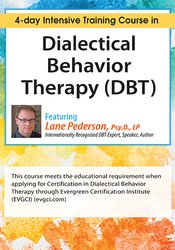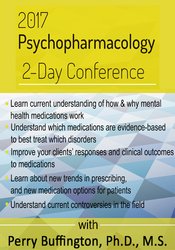Developmental Trauma and The Fear-Driven Brain -Applied Neuroscience to Provide Hope and Healing in Trauma Treatment – Sebern Fisher
Original price was: $439.99.$127.00Current price is: $127.00.
Developmental Trauma and The Fear-Driven Brain -Applied Neuroscience to Provide Hope and Healing in Trauma Treatment – Sebern Fisher has the same quality as the author’s salapage.
Salepage link: At HERE. Archive:
- Faculty:
- Sebern Fisher
- Duration:
- 12 Hours 4 Minutes
- Format:
- Audio and Video
- Copyright:
- Sep 17, 2018
Description
You’ve looked into the eyes of traumatized clients and seen absolute fear. For you, working with trauma isn’t about a paycheck.
You care about outcomes.
Abuse, abandonment, neglect and violent trauma. Experienced at an early stage of development, it sets up a life-shattering pattern of chronic fear, inner chaos and dysregulation. It disrupts the development of the brain, disorders the capacity for attachment, and distorts your clients’ relationships with themselves and others.
In therapy, an over-active amygdala sets off the stress response again and again, keeping clients from making real progress in traditional talk-based therapies. Without addressing the brain’s fear circuitry directly, therapeutic progress can prove elusive.
Sebern Fisher “gets” trauma. She knows what the fear-driven brain is all about. And insights and guidance from her groundbreaking work in the field of trauma and neurofeedback can provide you with a whole new paradigm to achieve the positive treatment outcomes you want for your clients.
In his foreword to Dr. Fisher’s critically acclaimed book Neurofeedback in the Treatment of Developmental Trauma, internationally recognized trauma expert Bessel van der Kolk, MD
Handouts
| Manual – Developmental Trauma and Fear-Driven Brain (8.07 MB) | 76 Pages | Available after Purchase |
Outline
Insecure Attachment and Developmental Trauma
- Neuronal patterns of PTSD
- The innate potential for relationship
- Unrepaired attachment disruption
- The inheritance of insecure attachment – the state of baseline survival fear
- Long-term consequences – void of self
The Fear-Driven Brain: Adverse Childhood Experiences and Trauma
- The traumatized brain
- The autonomic and central nervous systems
- The brainstem and hypothalamus
- The cerebellum, hemispheres and lobes of the brain
- Neurodevelopmental consequences
- Impaired brain development
- Impaired emotional regulation and impulse control
- Dysregulated stress response
- Alterations in physical growth
- Telomeres and cellular aging
- The firing and misfiring of neural networks
- Parasympathetic Nervous System shutdown and the vagal nerve
- Polyvagal Theory in trauma practice – Porges
- The role of glial cells
- Accessing brain plasticity
Arousal, Reactivity, and Affect Dysregulation in Trauma
- Overarousal and affect dysregulation
- Primary, sub-cortical and right hemisphere affects
- The inherent limits of talk therapy
- Chronic baseline fear and self-reflection
- The role of affect regulation in therapeutic effectiveness
Stop Letting Fear, Shame and Rage Hijack Trauma Treatment
- Shortcomings of medication
- The relationship between fear and shame
- Cognition in “survival mode”
- Manifestations of limbically driven emotions
- Neurofeedback and the pulses of fear, shame and rage
Fear as the Core of Transference: Handle Transference and Counter-Transference Issues
- Critical interpersonal dynamics – a partnership in affect regulation
- Impacts on the therapeutic bond
- Minimize intense transference
- Cultivate presence and attunement
- Neurofeedback and quieting the alarm of abandonment
Neurofeedback as Applied Neuroscience in Psychotherapy: Essentials and Assessment
- The risks of treatment
- Shift the burden of affect regulation from the therapist to the training
- A new experience of homeostasis
- Firing, frequencies, and arousal
- Strengthen circuits
- State dependence – fear states dysregulate
- States to traits
Quiet Fear with Neurofeedback: Integrate Neurofeedback into Trauma Treatment
- When to talk and when to train
- Clinical assessment for neurofeedback
- Attention, anxiety, depression, etc.
- Considerations regarding sexuality and medication
- Work with sensors, placements
- Identify maladaptive patterns of neuronal firing
- Using EEG – frequencies and amplitudes
- Adjust function – operant conditioning of brain waves
- Feedback – change the frequencies attributed to over-arousal
- Inhibit frequencies you want less of
- Reward frequencies you want more of
- Reward disconnected areas to connect or overly connected parts to disconnect
- When training plateaus – lack of progress is not resistance
- How do you know when training is over?
Who Will I Be When I’m Not Afraid: Working with the Fear-Bound Identity
- A trauma identity inextricably bound to fear
- The healing paradox
- Treatment challenges when fear begins to quiet
- Transition clients to an unfamiliar identity
- Integration of new state, new traits and new sense of self
Faculty
Sebern Fisher, MA, LMH, BCN Related seminars and products: 3
Sebern Fisher, MA, LMH, BCN is an internationally recognized expert on the use of neurofeedback in the treatment of developmental trauma and best-selling author of Neurofeedback in the Treatment of Developmental Trauma: Calming the Fear-Driven Brain. She has been working with traumatized people for over 35 years and has integrated Neurofeedback and psychotherapy in her treatment of developmental trauma in adults and adolescents for the past 20 years.
Prior to adopting Neurofeedback, Sebern was the clinical director of a residential treatment program for severely disturbed adolescents for 15 years. While there she introduced the understanding of the impact of attachment rupture and was the first to implement DBT in a residential setting.
Sebern consults and trains on the integration of Neurofeedback and therapy, nationally and internationally.
Speaker Disclosure:
Financial: Sebern Fisher is in private practice. She is an author for W.W. Norton and receives royalties. She receives a speaking fee from EEGer. Ms. Fisher receives a speaking honorarium from PESI, Inc.
Non-financial: Sebern Fisher has no relevant non-financial relationship to disclose.
Here's an overview of the prominent keywords and a list of famous authors:
Business and Sales: Explore business strategies, sales skills, entrepreneurship, and brand-building from authors like Joe Wicks, Jillian Michaels, and Tony Horton.
Sports and Fitness: Enhance athleticism, improve health and fitness with guidance from experts like Shaun T, Kayla Itsines, and Yoga with Adriene.
Personal Development: Develop communication skills, time management, creative thinking, and enhance self-awareness from authors like Gretchen Rubin, Simon Sinek, and Marie Kondo.
Technology and Coding: Learn about artificial intelligence, data analytics, programming, and blockchain technology from thought leaders like Neil deGrasse Tyson, Amy Cuddy, and Malcolm Gladwell.
Lifestyle and Wellness: Discover courses on holistic health, yoga, and healthy living from authors like Elizabeth Gilbert, Bill Nye, and Tracy Anderson.
Art and Creativity: Explore the world of art, creativity, and painting with guidance from renowned artists like Bob Ross and others.
All the courses on WSOlib are led by top authors and experts in their respective fields. Rest assured that the knowledge and skills you acquire are reliable and highly applicable.
Specification: Developmental Trauma and The Fear-Driven Brain -Applied Neuroscience to Provide Hope and Healing in Trauma Treatment – Sebern Fisher
|
User Reviews
Only logged in customers who have purchased this product may leave a review.

Original price was: $439.99.$127.00Current price is: $127.00.












There are no reviews yet.